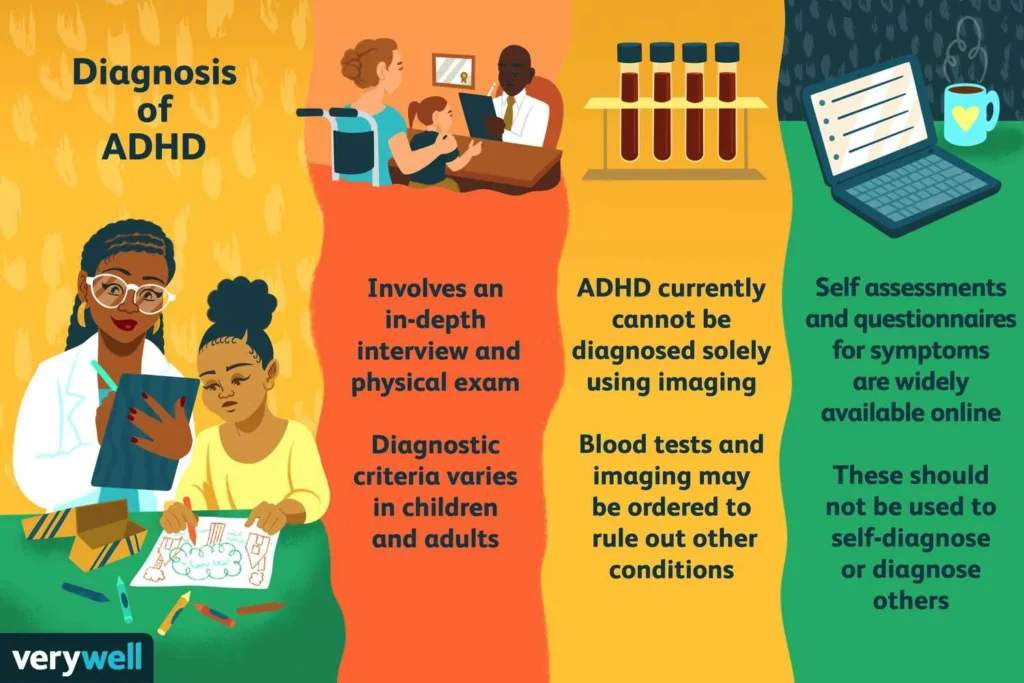Receiving an ADHD diagnosis as an adult can be a transformative experience, illuminating aspects of yourself that once felt puzzling and frustrating. Many individuals find that the traits they previously attributed to laziness or irresponsibility—like disorganization, forgetfulness, and impulsivity—are actually manifestations of how their brains process information. This newfound understanding brings both relief and a sense of adjustment, as patterns in one’s past begin to make sense. As you embark on this journey of self-discovery, you’ll uncover the complexities of living with ADHD and learn how to harness its unique characteristics to thrive.
| Aspect | Description |
|---|---|
| Time Management | ADHD causes time blindness, making it hard to perceive time accurately, leading to lateness and procrastination. |
| Hyperactivity | ADHD leads to racing thoughts and difficulty relaxing, resulting in a constantly active mind. |
| Losing Things | ADHD affects object permanence; if something is out of sight, it’s easily forgotten. |
| Routine Tasks | ADHD impacts executive function, making even simple tasks feel overwhelming. |
| Hyperfocus | ADHD allows intense focus on interesting tasks but difficulty with less engaging ones. |
| Interrupting Others | Impulsivity in ADHD leads to interrupting conversations due to a fear of forgetting thoughts. |
| Deadlines | ADHD requires urgency to trigger focus, making deadlines crucial for task completion. |
| Money Management | Financial issues arise from impulsivity and difficulty planning for long-term consequences. |
| Criticism Sensitivity | ADHD includes rejection sensitivity dysphoria, amplifying reactions to criticism. |
| Starting Projects | ADHD leads to excitement for new tasks but struggles to maintain interest long-term. |
| Memory Issues | ADHD causes working memory dysfunction, making it hard to retain conversations or instructions. |
| Organization | Traditional organization methods often fail; ADHD benefits from visual cues and flexible systems. |
| Social Situations | Socializing can be exhausting for those with ADHD due to the mental effort required. |
| Self-Perception | ADHD can create feelings of being too much or not enough, highlighting unique brain function. |
Understanding Adult ADHD: A New Perspective
Getting diagnosed with ADHD as an adult can be a life-changing experience. It often brings clarity to struggles that have plagued you for years, like disorganization and impulsivity. Instead of viewing these challenges as personal flaws, you can understand them as part of how your brain is wired. This newfound perspective allows you to embrace your uniqueness and explore strategies that align with your ADHD brain, paving the way for personal growth and better self-acceptance.
Realizing you have ADHD can feel like a light bulb moment, illuminating the reasons behind your past struggles. It’s not just about overcoming obstacles; it’s about recognizing patterns in your behavior that have always been there. This understanding can lead to relief and empowerment, as you begin to see that you’re not alone in your experiences. Many adults with ADHD share similar stories, and connecting with this community can provide support and helpful strategies as you navigate your daily life.
Frequently Asked Questions
What is adult ADHD and why is it important to get diagnosed?
Adult ADHD is a condition affecting focus, organization, and impulsivity. Getting diagnosed helps you understand these challenges, providing clarity and relief as you learn to manage them better.
How does ADHD affect time management?
ADHD can cause time blindness, making it tough to estimate how long tasks take. This often leads to chronic lateness and procrastination, as it’s difficult to perceive time accurately.
Why do people with ADHD struggle to remember conversations?
ADHD affects working memory, making it hard to retain information. This isn’t due to lack of interest but rather how the brain processes and remembers details.
What is hyperfocus in ADHD?
Hyperfocus is when someone with ADHD becomes intensely absorbed in activities they find interesting. It’s not a lack of attention but a shift in how focus is prioritized.
Why do people with ADHD feel overwhelmed in social situations?
Socializing can be exhausting for those with ADHD due to the need for constant self-monitoring. This mental effort can lead to feeling drained after social events.
How can someone with ADHD improve organization skills?
Traditional organization methods often fail for ADHD. Instead, using visual cues, sticky notes, or flexible systems can help manage tasks more effectively.
Why do deadlines help people with ADHD get things done?
Deadlines create urgency, which can trigger focus in individuals with ADHD. This helps them overcome procrastination and take action when tasks are time-sensitive.
Summary
Getting diagnosed with ADHD as an adult can be eye-opening, helping you understand past struggles like disorganization, forgetfulness, and impulsivity. These challenges are linked to how your brain processes information. For instance, ADHD affects time management, making tasks feel harder and causing issues like losing things often. Many adults with ADHD also find it tough to complete routine tasks or remember conversations. Understanding these patterns helps in finding better strategies, like using reminders or creating structured environments. Overall, a diagnosis can lead to greater self-acceptance and effective management of ADHD traits.

